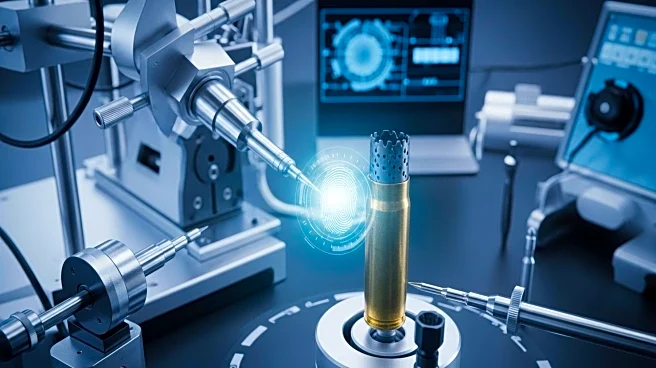What is the story about?
What's Happening?
A new forensic technique has been developed by Dr. Eithne Dempsey and Dr. Colm McKeever from Maynooth University in Ireland, allowing for the recovery of fingerprints from fired ammunition casings. This method uses an electrochemical process to visualize fingerprints on brass casings, even after exposure to the high temperatures of gunfire. Traditionally, the intense heat and friction from firing a gun destroy any biological traces, making it difficult for investigators to retrieve fingerprints from weapons. The new technique involves coating the brass casings with specialized materials, revealing hidden fingerprint ridges without the need for dangerous chemicals or high-powered equipment. This breakthrough could significantly impact criminal investigations by potentially matching casings back to the person who loaded the gun.
Why It's Important?
This development holds significant implications for forensic science and criminal investigations. By enabling the recovery of fingerprints from fired ammunition casings, law enforcement agencies could gain a powerful tool in solving firearm-related crimes. The ability to match casings to individuals rather than just the weapon could lead to more accurate and efficient criminal investigations. This method could also be adapted for other metallic surfaces, broadening its application in various forensic scenarios. The technique's use of non-toxic materials and minimal energy makes it a safer and more accessible option for forensic teams worldwide.
What's Next?
The new technology will undergo rigorous testing and validation before it can be widely adopted by law enforcement agencies. If successful, it could revolutionize the way forensic teams handle evidence from crime scenes involving firearms. The researchers are also exploring the potential to adapt this method for other types of metallic surfaces, which could further expand its forensic applications. As the technique becomes more refined, it may lead to the development of portable forensic testing kits, making it easier for investigators to use in the field.















